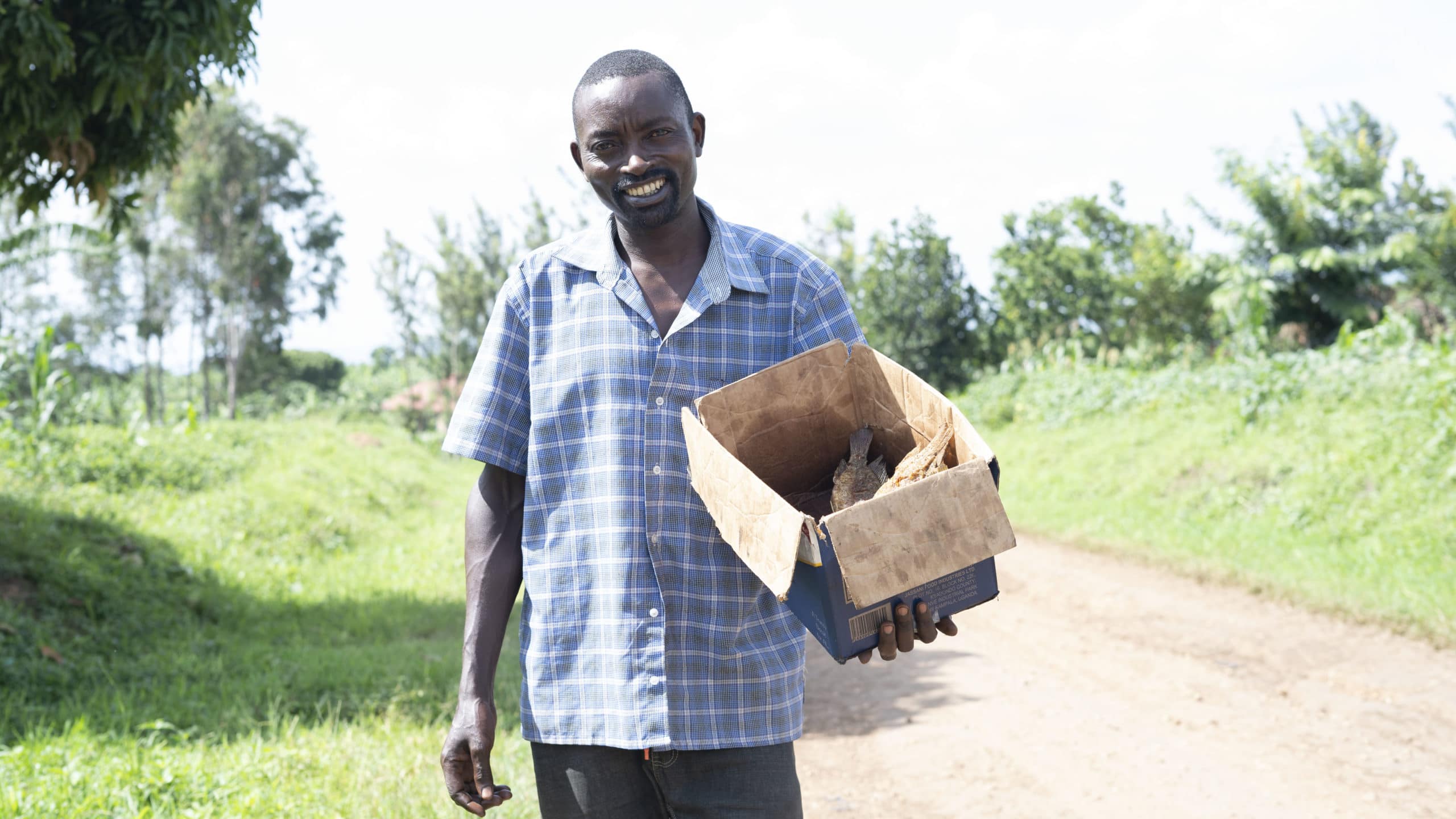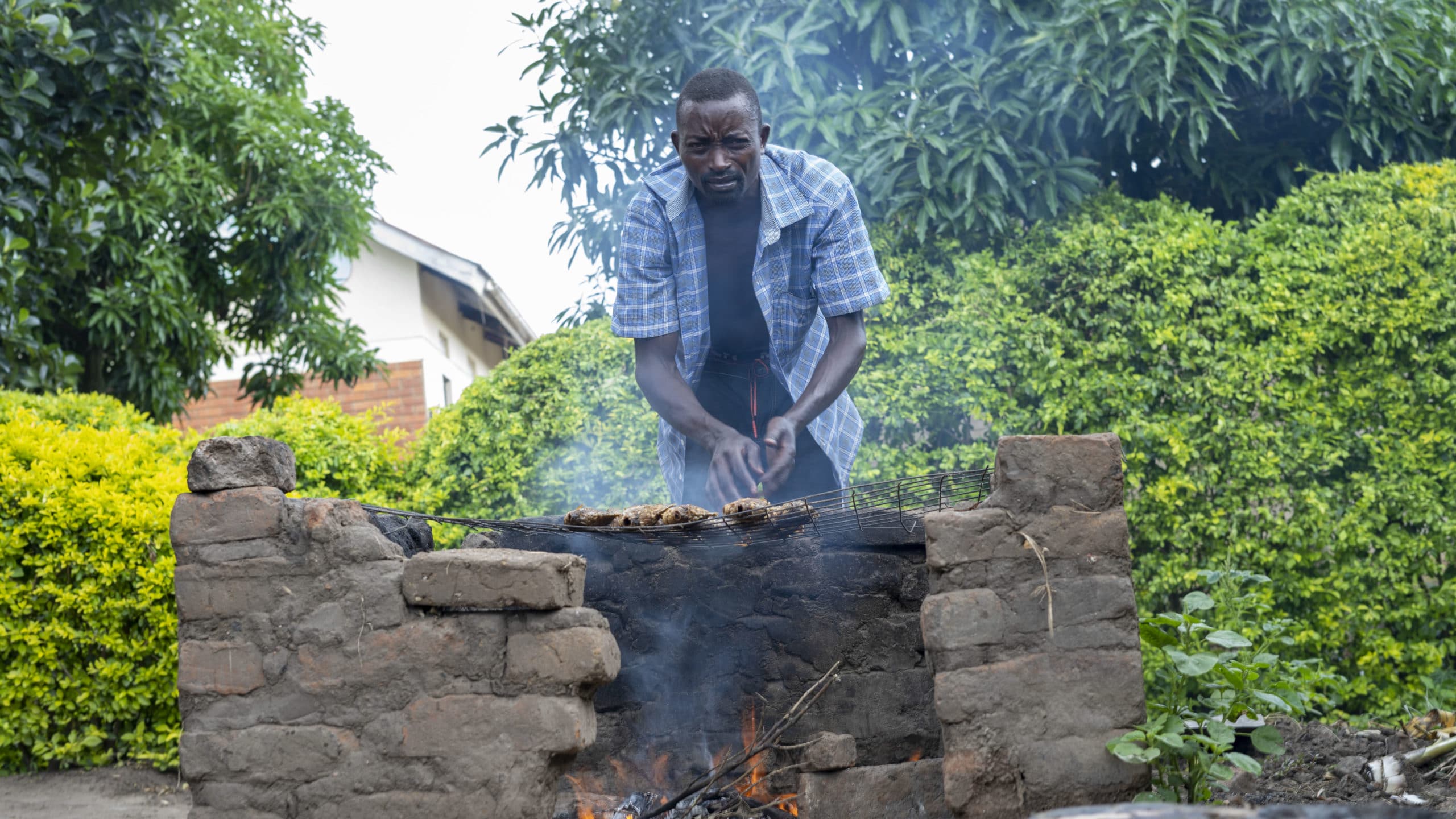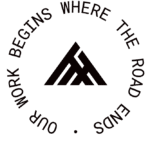From Small Savings to Smoked Fish – An Entrepreneur’s Story
Moses starts his daily journey in the early morning at the fishing site. Upon buying the day’s fish, he smokes it at home and sets off to the road looking for customers. He proudly takes his prepared fish to doorsteps across his village, Rugarama, until he sells out.

Moses delivers his fish to his community at Rugarama Village, Rubirizi District.
Responsible for a family of eight, Moses believes that this new business has changed his family’s life. But his journey has not been without its challenges. Like many in his community, Moses was previously faced with the multifaceted challenges and effects of ultra-poverty. To provide for his wife and children, he was completely reliant on the family’s small subsistence garden. As his family grew bigger, the small garden failed to provide enough food, and the family struggled to meet their needs.
“We were so poor that we couldn’t put any money aside. We couldn’t even afford transportation costs to get our children to the hospital for emergencies,” Moses shares.
Motivated to find a source of income to cover his family’s needs, Moses was eager to start his own business. However, with limited savings and access to financial services, it was challenging to overcome the barriers that were in his way.
“I wanted to try fishing to provide for my family, but that required capital that I didn’t have. When Raising The Village trained us and helped us establish our VSLA [Village Savings and Loan Association], that was the beginning of my business journey,” Moses’ face brightens up as he remembers. “With this VSLA, we started saving little by little.”
As part of the “Secure, Improve, Sustain” Program, Raising the Village empowers partner communities through financial literacy training and establishing Village Saving and Loans Associations (VSLAs). Through these groups, community members learn the skills of saving, business planning, record keeping, and planning for the future, among others. With access to financial services, last-mile communities are able to thrive and create small businesses through saving and lending, a significant step toward breaking out of ultra-poverty.
After founding the Rugarama Tumanyane VSLA with his peers, Moses borrowed UGX 50,000 ($14) to start his smoked fish business. Combined with another UGX 50,000 ($14) in savings, he was able to buy his first stock of fish.
“When I buy my stock, I sell it over two days. On average, I make a profit of around 25,000 UGX ($7), which I use to feed my family and save some. Sometimes, I even sell everything on one day,” he reveals.
After struggling with ultra-poverty for years, Moses is proud to have created his own business. By identifying the opportunity to transform an existing product into something more valuable by smoking and delivering it to customers’ doorsteps, he created a new concept, generated income, and began earning enough to meet his family’s needs.

Moses smokes his fish at home before he heads out to sell them.
Today, Moses has become a source of inspiration to many, and has also taken it upon himself to empower others in this community, including youth and women.
“Some people from other towns have asked me about my business, and I’m always happy to share tips. I teach them how to operate the business from the suppliers at the fishing site to the customers. I also advise them to save some of their money in a savings group,” Moses states proudly.
When he has enough savings, Moses plans on buying a bike to help him move his fish easily. As his business grows, he plans to increase the number of fish he smokes and sells, thus generating more income.
An entrepreneur at heart, Moses has used his new skills—and most importantly his own ambition—to continue on the pathway out of ultra-poverty.


